Fewer mothers pass HIV to babies
Updated: 2015-09-18 07:42
By Wang Xiaodong(China Daily)
|
||||||||
Most now receive antiretroviral drugs, and free treatment is increasing in $940m program
HIV infection rates among infants born to HIV-positive women in China have dropped by more than 80 percent in the past decade due to effective intervention, says a report by the National Health and Family Planning Commission.
In 2014 alone, through prevention of mother-to-child transmission of HIV, 1,240 Chinese children who would otherwise have been infected with HIV were born free of the virus, according to the report, which was released this week.
In China, prevention efforts have resulted in drastic reductions in mother-to-child transmission of HIV, from 34.8 percent before 2005 to 6.1 percent last year.
From 2005 to 2014, the proportion of HIV-positive mothers receiving antiretroviral drugs rose from 64.6 percent to 82.6 percent, while the proportion of children born to HIV-infected women receiving the drugs climbed from 77.2 percent to 91.7 percent, according to the report.
The findings were shared at the 10th Asia-Pacific United Nations Elimination of Parent-to-Child Transmission of HIV and Syphilis Task Force meeting in Beijing this week.
They demonstrated the Chinese government's commitment to expand services to women in need and also contribute to global targets to eliminate new pediatric infections by 2030, according to a statement released by UNAIDS, United Nations Children's Fund and the World Health Organization on Thursday.
Pregnant women with HIV in China are provided with free drugs to prevent mother-to-child transmission and their babies can receive free HIV tests, according to a policy adopted in China in 2004.
Since 2010, China's national mother-to-child transmission prevention program has been expanded to syphilis and hepatitis B, two other serious infectious diseases. Earlier this year, the Chinese government announced that the country has scaled up prevention services to all areas in China.
Song Li, an official for maternal health at the National Health and Family Planning Commission, said more than 95 percent of pregnant women with HIV, syphilis or hepatitis B received free tests last year.
China's central government has invested 6 billion yuan ($940 million) in the prevention program, and this year 1.4 billion yuan would be invested in the project, Song said.
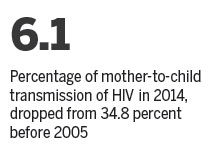
"China will continue a sustainable investment to prevent mother-to-child infection of HIV, syphilis and hepatitis B," Song said.
HIV transmission to children can happen during pregnancy, at birth or through breast-feeding. Globally there is up to a 30 percent chance of HIV-positive women transmitting HIV to their baby if untreated - about half of all HIV-positive babies will die before the age of two.
"The government of China has demonstrated visionary leadership in responding to some of the biggest public health challenges of our times," said Catherine Sozi, a UNAIDS representative.
Despite progress, China still faces challenges to reach zero HIV transmission from mother to child, due to China's huge population and unbalanced development between different regions, Song said.
"In the future, we will focus on people in remote and impoverished areas, and the migrant population, so they equally enjoy prevention services," she said.
- UN chief: Those blocking fleeing refugees should 'stand in their shoes'
- Hungarian riot police detain migrants
- IOC announces five cities bid for 2024 summer Olympic
- Japan opposition to halt vote on security bills
- Japan protesters rally as security bills near passage
- Australia launches first air strikes against IS
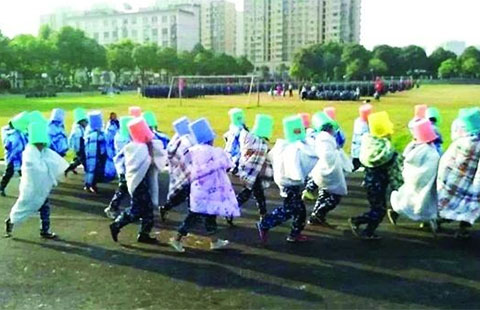
 Messy dorm earns grueling punishinment for students
Messy dorm earns grueling punishinment for students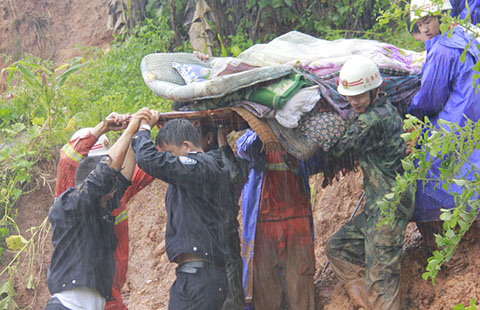
 Seven killed as rainstorm triggers landslide in SW China
Seven killed as rainstorm triggers landslide in SW China
 Chinese armed forces arrive in Malaysia for joint military exercise
Chinese armed forces arrive in Malaysia for joint military exercise
 Top 10 M&A deals between China and US in 2015
Top 10 M&A deals between China and US in 2015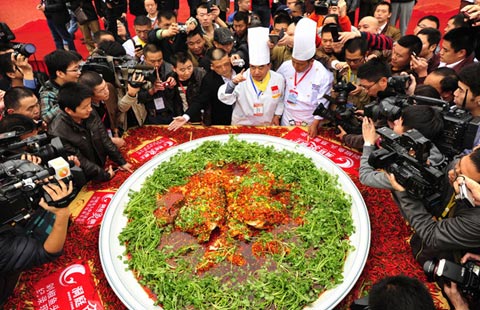
 Delicious bites in record-breaking sizes
Delicious bites in record-breaking sizes
 Popular Chinese dishes in the US
Popular Chinese dishes in the US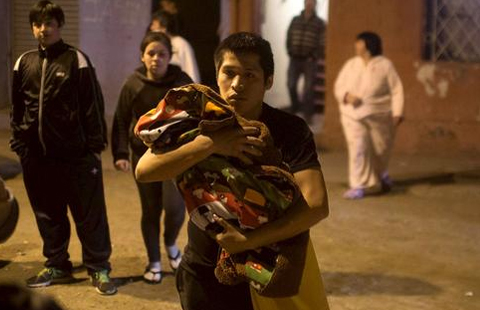
 Evacuation ordered after M8.3 earthquake hits Chile’s coast
Evacuation ordered after M8.3 earthquake hits Chile’s coast
 Donate sperm to get an iPhone 6s
Donate sperm to get an iPhone 6s
Most Viewed
Editor's Picks

|

|

|

|

|

|
Today's Top News
Economy worries prompt Fed to hold rates steady
Google demos online marketing strategies to support Chinese SMEs
The ancient city takes a new route along the Silk Road
Villagers angry at verdict on fatal fire
Promoting the landscapes of China
Uber's Chinese rival backs US rival Lyft
Positive tone struck for Xi's US visit
Xi to press case for Bilateral Investment Treaty
US Weekly

|

|







